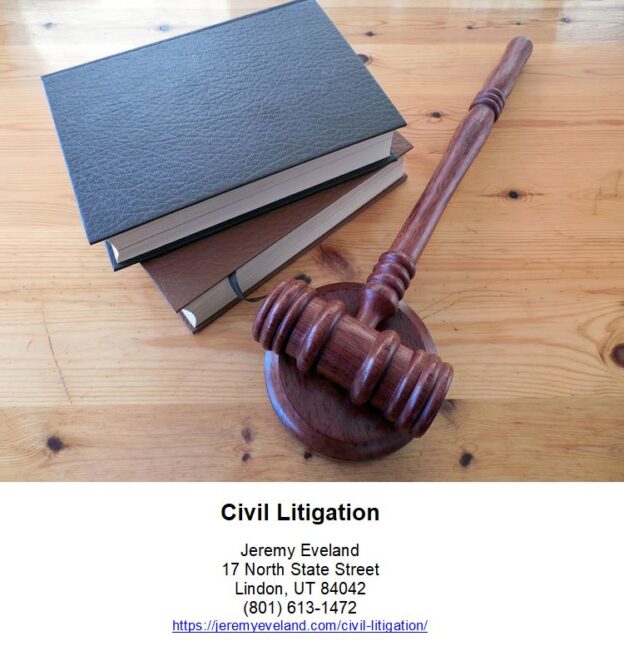In the ever-evolving digital age, the value of paper documents may seem antiquated. However, businesses still heavily rely on physical records for various purposes, ranging from legal contracts to financial statements. The proper management and organization of these paper documents are crucial to protecting a company’s assets and ensuring compliance with legal requirements. In this article, we will explore the importance of paper document collection and its role in safeguarding businesses and business owners. Additionally, we will address frequently asked questions surrounding this topic, providing concise answers to provide clarity and valuable insight for our readers.
Paper Document Collection
Paper Document Collection refers to the process of gathering and organizing physical documents for various purposes, such as legal proceedings, record-keeping, compliance, and audits. In this digital age, where electronic files are prevalent, the importance of paper document collection may be overlooked. However, numerous situations still necessitate the need for physical documents, making this process crucial for businesses and individuals alike.

What is Paper Document Collection?
Paper Document Collection involves the systematic gathering and storage of physical documents, including contracts, invoices, agreements, correspondence, and other important papers. These documents serve as a tangible record of transactions, agreements, and other business activities. Proper organization and maintenance of these documents are vital to ensure compliance, effective record-keeping, and seamless retrieval when needed.
Why is Paper Document Collection important?
Although technology has revolutionized the way we store and manage data, paper documents continue to play a significant role in various industries and legal proceedings. For legal purposes, courts and regulatory bodies often require original or physical copies of documents as evidence. Additionally, some industries, such as healthcare and financial services, have strict regulatory requirements that mandate the retention of physical documents.
Moreover, paper documents provide a sense of security and trust. In certain instances, businesses and individuals may prefer physical documents to electronic ones, considering the potential risks of data breaches and system failures. Physical documents also offer a reliable backup option for emergencies, ensuring business continuity and risk management.
The Challenges of Paper Document Collection
Collecting and managing paper documents can present several challenges. Firstly, it can be time-consuming and labor-intensive, requiring dedicated resources and efforts. Sorting through piles of documents, organizing them, and ensuring their integrity can be a daunting task, often diverting valuable time and attention from core business activities.
Space constraints can also pose an issue, particularly for businesses with limited storage capacity. Accumulating a significant volume of paper documents over time can consume valuable office space, leading to cluttered work environments and inefficient workflows.
Additionally, document retrieval and accessibility can be cumbersome. Without proper indexing and organization, locating specific documents among a vast collection can be time-consuming and frustrating. This can hinder productivity and delay critical business processes, such as contract reviews or compliance audits.
Benefits of Paper Document Collection
Despite the challenges, paper document collection offers numerous benefits that justify its continued importance. Firstly, physical documents provide tangible evidence that can be difficult to dispute. In legal proceedings, original documents often carry more weight than digital copies, increasing their evidentiary value.
Moreover, paper documents facilitate better organization and ease of use. With proper categorization, labeling, and indexing, physical documents can be quickly accessed and retrieved. This enables efficient workflows and enhances productivity, as employees and stakeholders can easily locate and reference the necessary papers.
Physical documents also provide a backup option in case of technological failures or disasters. While electronic storage systems can experience data loss or breaches, paper documents offer a reliable and secure means of preserving information. This provides peace of mind and ensures the availability of critical data in times of need.
The Process of Paper Document Collection
Efficient paper document collection involves a systematic and well-defined process. The following steps outline an effective approach to gathering and organizing physical documents:
-
Identify the purpose: Determine why you need to collect the paper documents and establish the scope of the collection process. This could be for legal proceedings, compliance, audits, or general record-keeping.
-
Create a checklist: Develop a checklist of the specific documents you need to collect. This ensures that no crucial papers are overlooked during the process.
-
Gather the documents: Physically collect the identified documents from their various storage locations. Ensure that the process is thorough and encompasses all relevant sources, such as filing cabinets, safes, and off-site storage facilities.
-
Sort and categorize: Organize the documents into specific categories based on their type, purpose, or relevance. This enables easy retrieval and facilitates future document management efforts.
-
Label and index: Label each document to provide quick reference points. Index the documents by creating an inventory or database that includes essential information about each document, such as the title, date, and location.
-
Implement a storage system: Determine an appropriate storage system that ensures the documents’ safety, confidentiality, and accessibility. This could involve investing in secure filing cabinets, fireproof safes, or utilizing off-site document storage services.
-
Develop retention policies: Establish clear guidelines regarding the retention and disposal of the collected documents. Compliance with legal and regulatory requirements is crucial when determining the duration for which documents need to be retained.
Tips for Effective Paper Document Collection
To enhance the efficiency and effectiveness of paper document collection, consider implementing the following tips:
-
Automation: Utilize document management software that can automate certain aspects of the collection process, such as indexing and categorization. This can significantly reduce manual effort and streamline the overall process.
-
Prioritize document organization: Develop a consistent and logical organizational structure for your documents. This facilitates quick and easy retrieval, saving valuable time and resources.
-
Regular maintenance: Implement a schedule for reviewing and purging unnecessary documents. Regularly assess the relevance and value of each document to optimize storage space and maintain an organized document repository.
-
Secure document disposal: When disposing of sensitive or confidential documents, utilize shredding services to ensure complete destruction. This mitigates the risk of identity theft or unauthorized access to sensitive information.
-
Training and awareness: Provide employees with training on proper document collection procedures. This ensures compliance, accuracy, and consistency throughout the organization.

Legal Requirements for Paper Document Collection
Various legal requirements govern paper document collection, particularly in industries with specific compliance obligations. These requirements typically pertain to data privacy, record-keeping, and document retention. Businesses must understand and comply with relevant laws and regulations to avoid legal consequences and penalties.
It is advisable to consult with legal professionals familiar with the specific legal requirements applicable to your industry. They can provide guidance and help develop comprehensive document collection and retention policies that align with legal obligations.
Common Mistakes to Avoid in Paper Document Collection
When collecting paper documents, it is crucial to avoid common mistakes that can compromise the integrity and effectiveness of the process. The following are some common pitfalls to steer clear of:
-
Failure to establish clear guidelines: Without clear guidelines, employees may adopt inconsistent approaches to document collection, leading to confusion and inefficiencies.
-
Lack of indexing and categorization: Neglecting to properly index and categorize documents can make retrieval difficult, hampering productivity and wasting time.
-
Overly broad retention policies: Retaining documents for longer than necessary can consume valuable storage space and increase the risk of data breaches. Develop retention policies that align with legal requirements and business needs.
-
Lack of document security: Inadequate security measures can expose sensitive or confidential information to unauthorized access. Implement robust security protocols and ensure employees are trained on handling sensitive documents.
-
Failure to adapt to digital transformation: While physical documents are still relevant, businesses should strive to digitize documents whenever possible. This allows for easier sharing, collaboration, and remote access.

When to Seek Professional Assistance
Navigating the complexities of paper document collection can be challenging, especially for businesses with large volumes of documents or specific legal requirements. Seeking professional assistance from a lawyer experienced in document management and compliance can offer several benefits.
Lawyers with expertise in this area can provide guidance on legal requirements, assess your current document collection practices, and help develop comprehensive document retention policies. They can also assist in implementing secure storage systems, advise on data privacy regulations, and handle any legal issues related to document collection and management.
FAQ about Paper Document Collection
Q: Can I rely solely on electronic documents and eliminate the need for paper document collection?
A: While electronic documents offer many advantages, certain situations may still require physical copies of documents. It is essential to assess your specific needs and comply with any legal or regulatory requirements.
Q: How long should I retain paper documents?
A: The retention period for paper documents varies depending on the nature of the document and applicable laws or regulations. Consult with legal professionals to establish retention policies that align with your industry’s requirements.
Q: Are there any risks associated with paper document collection?
A: While paper document collection offers benefits, it also carries risks such as document loss, damage, or unauthorized access. Implementing proper security measures, including secure storage and document disposal protocols, can mitigate these risks.
Q: Can I digitize my paper documents to reduce storage space?
A: In many cases, digitizing paper documents can be a valuable strategy to optimize storage space and enhance accessibility. However, consider legal requirements and consult with professionals to ensure compliance and data security.
Q: How can I ensure the confidentiality of sensitive paper documents?
A: Implementing strict access controls, such as restricted areas and secure storage systems, can help maintain the confidentiality of sensitive paper documents. Additionally, training employees on document handling protocols and proper disposal methods is essential.
In conclusion, paper document collection continues to be a crucial process for businesses and individuals, despite the prevalence of electronic files. Understanding the importance, challenges, and benefits of paper document collection can help organizations ensure compliance, facilitate efficient workflows, and safeguard critical information. By following best practices, seeking professional assistance when necessary, and staying informed about legal requirements, businesses can streamline the paper document collection process and effectively manage their physical records.



















